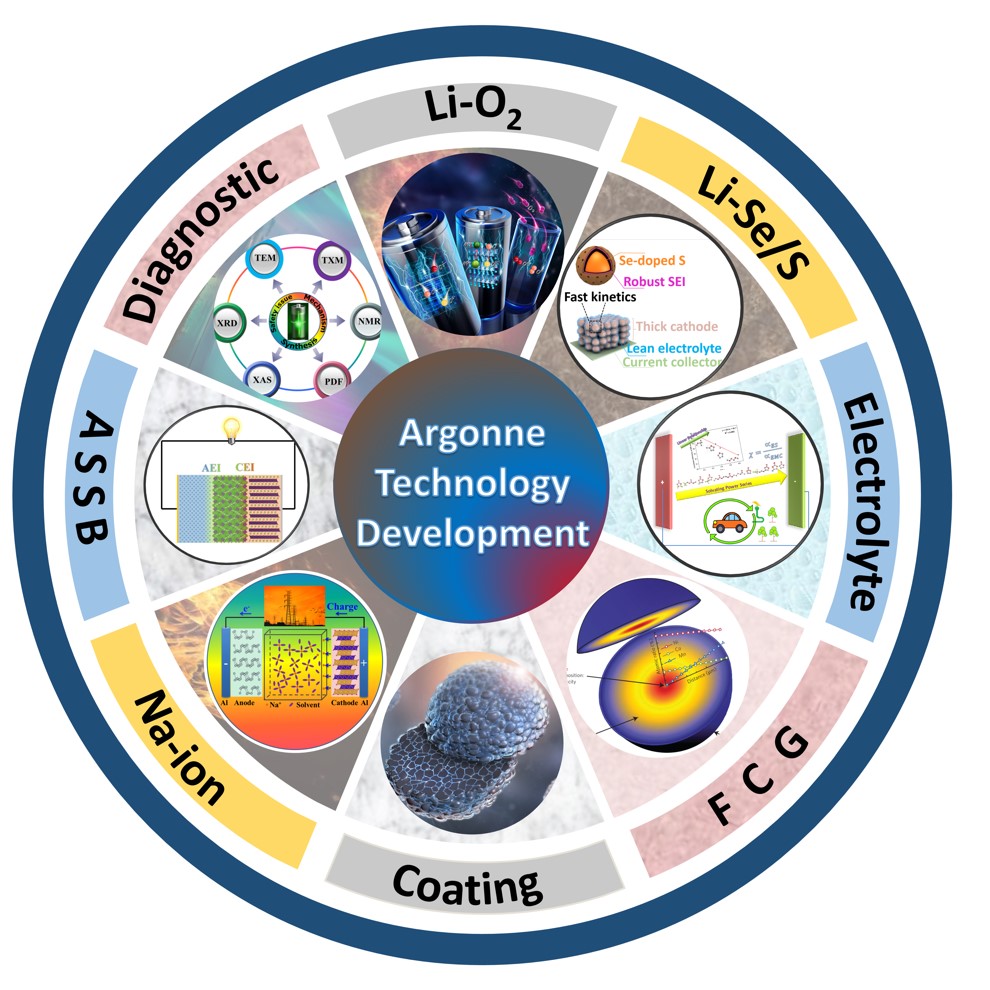The Technology Development group is dedicated to developing advanced cathodes, anodes, electrolytes, and additives for next-generation lithium-ion batteries. The group is also working extensively to develop materials and systems beyond lithium ion, such as lithium sulfur, lithium selenium, lithium air, lithium superoxide closed system, ASSB, and sodium ion. We combine capabilities in advanced materials synthesis, electrochemical testing & characterization to solve energy storage problems and develop new energy storage materials. We maintain strong connections with industry, U.S. national labs, and the academic research community, which allow us to maintain a leadership role in developing next-generation materials and systems for electrochemical energy storage. We contribute to several Department of Energy programs in many areas of energy storage, mainly transportation related. We also support Department of Defense programs by developing high energy, safe batteries for their use.
The key focus areas of this group include the following:
Development of Next-Generation Lithium-Ion Full Cells: Our focus is to understand the combinations of cell components that can be assembled to create high-energy-density lithium-ion batteries. We are focused on the (1) synthesis of Ni-rich cathodes, (2) the application and role of coatings, and (3) development of cathodes with a cation gradient (FCG) within each particle..
Beyond Lithium-Ion Technologies: The aim of this research is to enable high energy density, high efficiency, and high reversibility of beyond-lithium-ion technologies by means of extensive computer modeling and use of advanced characterization techniques.
- Li-air (Li-O2) systems: Development of electrochemical system additives, catalysts, models, and processes that enable Li-Air energy storage chemistry. New concepts include the Lithium superoxide (LiO2) battery, a new concept that uses a lithium-oxygen conversion reaction in association with extensive computer modeling and use of advanced characterization techniques to guide this effort.
- Li-S and Li-Se Battery Systems - Developing of new carbon hosts and electrolytes to enable shuttle-free operation
- Na-ion battery systems: Development of novel cathode and anode materials for energy storage applications.
- High Precision Coulometry: Identification of new electrochemical methods to better understand the parasitic reactions that take place in Li-Si cells and lead to shorter than desired calendar life.
- Solid-State Electrolytes: Investigating the role of sintering reactions in solid-state oxide electrolyte systems and the stability of SSE materials with lithium metal.
